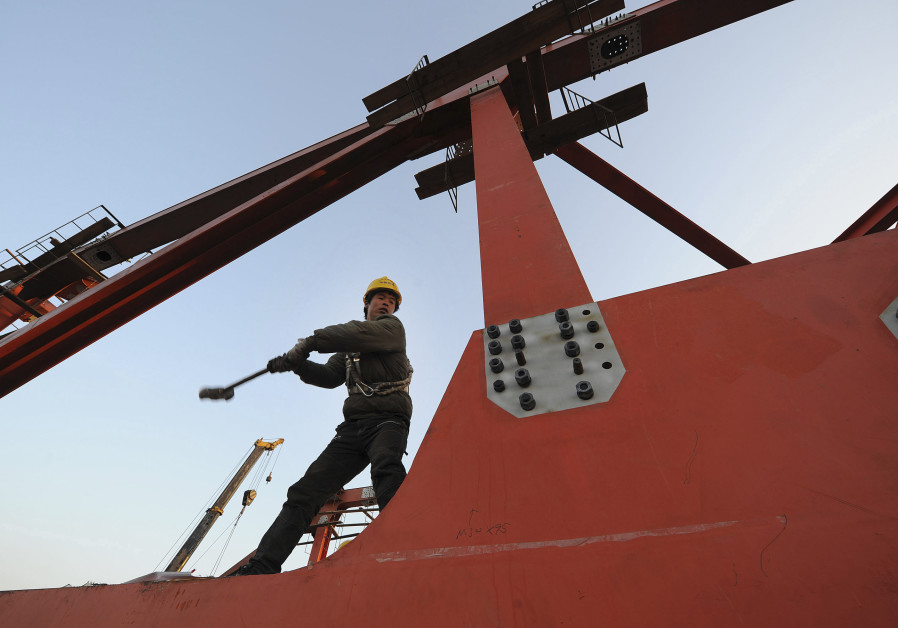High Court petition: Israel failing to block unwanted foreign businesses

A labourer works at a high-speed railway viaduct construction site in Hefei, Anhui province January 4, 2011.. (photo credit: REUTERS)
Government mechanisms established to prevent foreign entities conducting business with Iran from operating in Israel are not being implemented, according to a petition filed to the High Court this week.
The petition, filed on Sunday by Adv. Prof. Aviad Hacohen and Adv. Moshe Jaffe of the Academic Center for Law and Science in Hod Hasharon, alleges that the government has failed to implement oversight measures required by the 2012 Law on the Struggle Against Iran’s Nuclear Program, particularly in regard to Chinese companies currently operating and competing for tenders in Israel.
The legislation aims to impose sanctions on individuals or corporations assisting Iran in its nuclear program ambitions, and to restrict economic contact with corporations maintaining business relations with Iran.
It provides for a ministerial committee to meet regularly and designate such individuals or corporations as “foreign assisting bodies,” as well as list all designated and exempt entities on a dedicated Finance Ministry website.
“The government is not doing anything to check the details of companies working with entities blacklisted by the US for their dealings with Iran,” Hacohen, a professor and president of the Academic Center for Law and Science, told The Jerusalem Post. “In recent years, the ministerial committee has not met on a regular basis as written in the 2012 law, or even met at all. The petition is simply demanding that the government should obey the law.”
According to the petition, the failure of the authorities to comply with the law has enabled companies with ties to Iranian businesses to participate in state tenders in the fields of infrastructure, transportation and communications, and are granted state-backed licenses and concessions, all while posing a “risk to the vital interests of the State of Israel.”
Hacohen cited the current participation of state-owned Chinese railway giant CRRC in a tender for the extension and operation of the Jerusalem Light Rail. Final bids for the competitive process were submitted on Monday.
In March 2018, CRRC signed a contract with Iranian government-owned IDRO Group to supply the Iranian cities of Ahvaz, Tabriz and Shiraz with 450 subway carriages.
The company is also manufacturing carriages for the Tel Aviv light rail’s Red Line, which is slated to commence operations in October 2021.
The petition also highlighted the activity of Chinese companies in other “critical sectors for Israel’s economy and security,” including the construction and operation of ports, power plants, desalination facilities, as well as road, cyber and communications infrastructure.
Concerns regarding current and future Chinese government-associated operations in Israel have not just been limited to business ties with Iran.
Israel’s decision in 2015 to grant a 25-year permit to Shanghai International Port Group (SIPG) – majority-owned by the Shanghai municipality – for the upgrade and management of Haifa Port has been the cause of significant concern in Washington, as the facility serves as a frequent dock for the US Sixth Fleet.
Join Jerusalem Post Premium Plus now for just $5 and upgrade your experience with an ads-free website and exclusive content. Click here>>






Comments are closed.